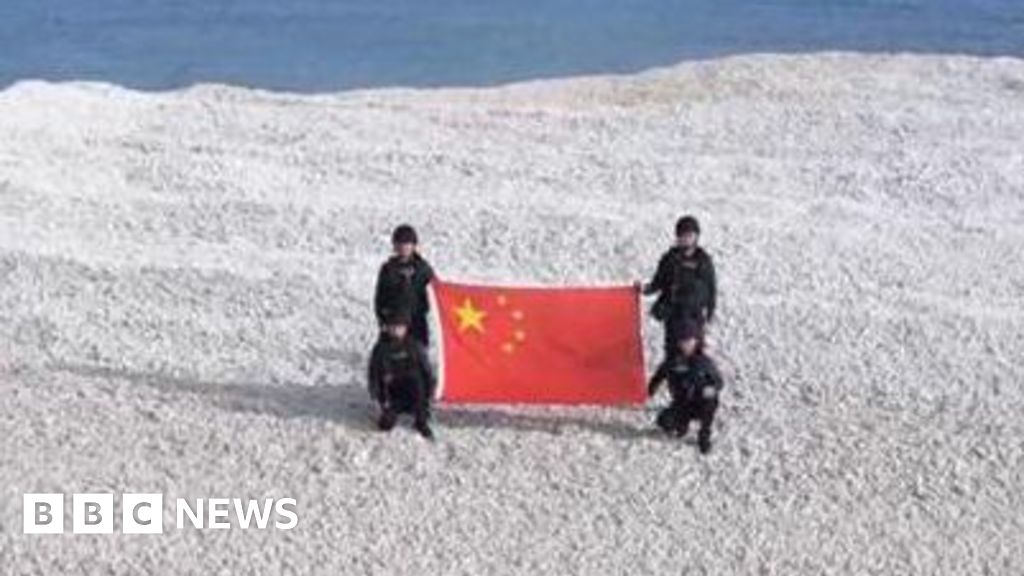Beijing's South China Sea Sandbank Seizure: A New Geopolitical Flashpoint
Introduction:
The recent seizure of a strategically important sandbank in the South China Sea by Beijing has ignited a fresh wave of geopolitical tension. This bold move by China, which claims almost the entirety of the resource-rich waterway despite overlapping claims from several other nations, marks a significant escalation in the ongoing dispute and raises serious concerns about regional stability and international law. This article delves into the details of the seizure, its implications, and the potential consequences for the region and the world.
The Sandbank and its Significance:
While the exact location of the seized sandbank remains officially undisclosed by Chinese authorities for strategic reasons, reports suggest it's situated within a highly contested area, potentially near the Spratly Islands. This area is crucial due to its:
- Strategic Location: The sandbank's location commands key maritime routes and provides access to vital fishing grounds. Its proximity to other disputed features amplifies its importance.
- Resource Potential: The surrounding waters are believed to hold significant reserves of oil and natural gas, further fueling the intense competition for control.
- Military Implications: Control of the sandbank would allow for the establishment of military installations, enhancing China's ability to project power in the region and potentially monitor and restrict the movement of other nations' vessels.
China's Assertiveness and the International Response:
China's actions represent a continuation of its increasingly assertive policy in the South China Sea. This latest seizure follows a pattern of land reclamation, construction of artificial islands, and military buildup in the region, all conducted with minimal regard for international law, particularly the United Nations Convention on the Law of the Sea (UNCLOS).
The international community's response has been varied:
- The United States: The US has condemned the seizure, reinforcing its commitment to freedom of navigation in the South China Sea and urging China to abide by international law. Increased naval patrols in the region are expected.
- ASEAN Nations: Several ASEAN (Association of Southeast Asian Nations) member states, directly affected by China's actions, have expressed concerns, albeit cautiously, given the economic and diplomatic leverage China wields.
- International Organizations: The UN and other international bodies have called for de-escalation and a peaceful resolution through diplomacy and adherence to international law. However, enforcement remains challenging.
Potential Consequences and Future Outlook:
The seizure of the sandbank could have several serious consequences:
- Escalation of Tensions: The incident risks triggering a military confrontation, particularly if other claimant states respond aggressively.
- Regional Instability: Increased military presence and heightened tensions could disrupt trade, fishing, and tourism, negatively affecting the regional economy.
- Erosion of International Law: China's disregard for UNCLOS sets a dangerous precedent, potentially undermining international norms and the rule of law.
The future outlook is uncertain. A peaceful resolution through diplomacy remains the preferred option, but the current trajectory suggests an increased risk of conflict. International pressure, coupled with a unified stance from regional actors, will be crucial in preventing further escalation and upholding international law in the South China Sea. The situation demands close monitoring and proactive diplomatic efforts to de-escalate the tension and find a lasting solution based on international norms.
Call to Action:
Stay informed about developments in the South China Sea through reputable news sources and encourage open dialogue about the importance of international cooperation and adherence to international law in resolving this critical geopolitical issue. Support initiatives promoting peaceful conflict resolution and upholding the rule of law in the region.

